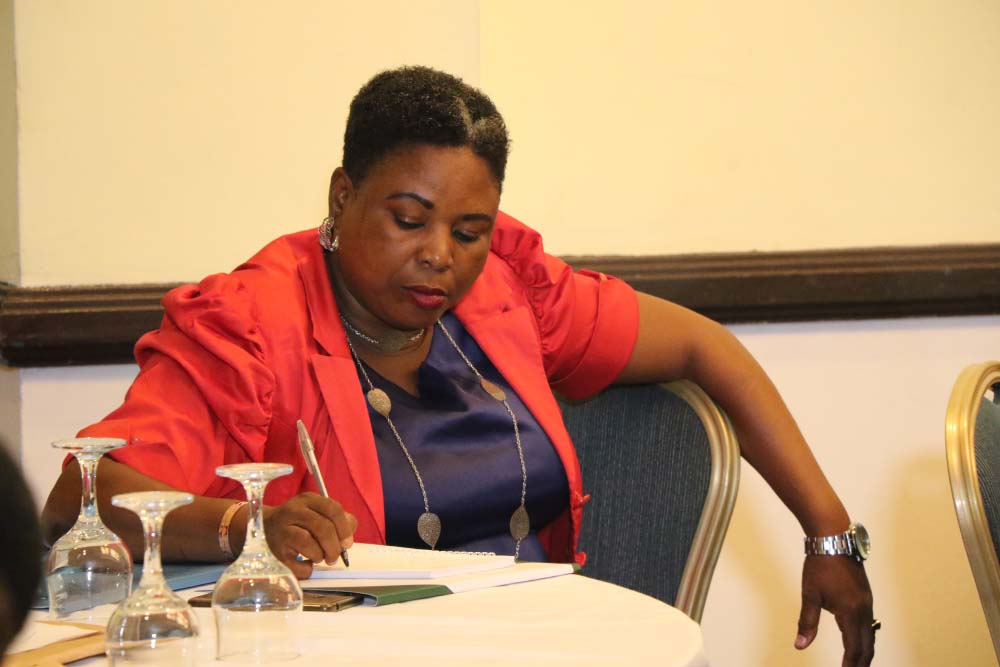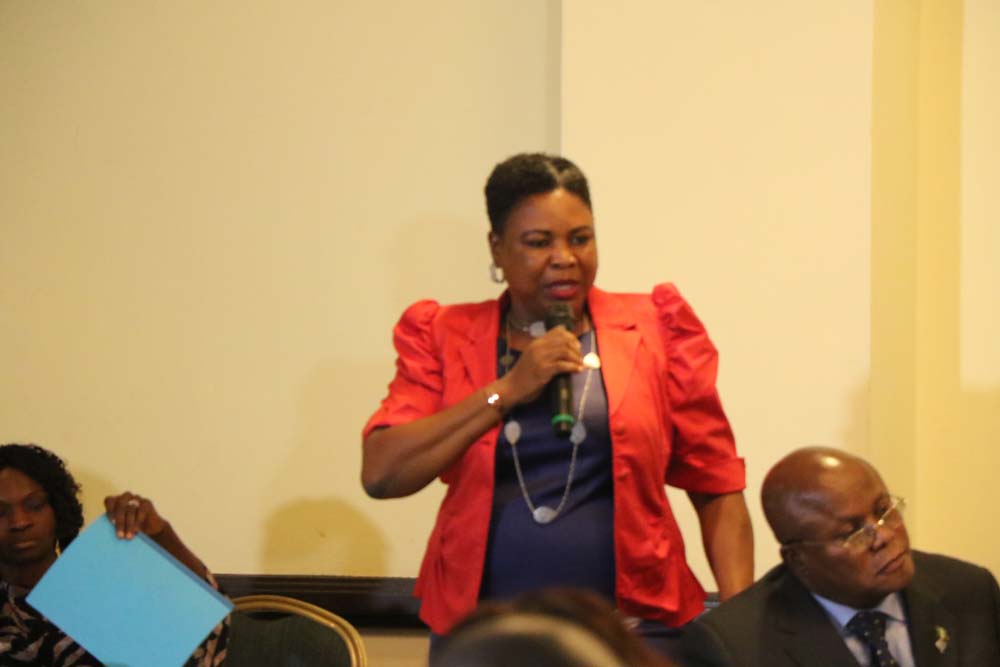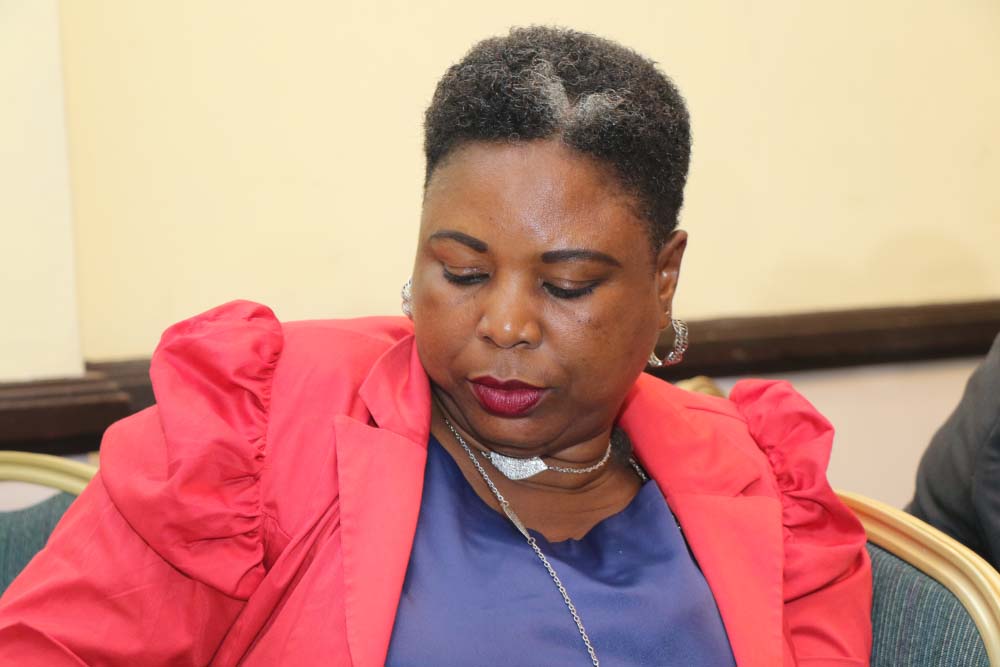For a long time Rachael Misan-Ruppee had always nursed the ambition of touching the lives of people in her community. Each time she mooted the idea of what to do contribute to development of Warri, the capital city of Delta State, a number of options ran through her mind.
She could not really place her fingers on a particular program that could address the myriads of challenges facing the Niger Delta—youth restiveness, teenage pregnancy, unemployment, oil-spillage, gender-based violence and discrimination among others.
“I was always thinking of what to do to affect the lives of people of Niger Delta,” says Misan –Ruppee.
“And it was always difficult for me to think straight on what exactly I could do that will impact the lives of women, girls and everyone in the community because the issues were just many.”
She knew it was near impossible for a single individual to attempt to proffer solutions to all the problems. But all along, her passion was to make difference in the areas of women and girl child advocacy.
But not until 2011 that she finally got the real inspiration, the will power and the right kind of ideas about what to do —Misan-Ruppee came up with Development Initiative for Community Impact (DICI), a Non-overnmental Organization that will focus on issues that affect women, girl child, as well as empowerment and peace building.
Armed with such beautiful focus, her organization set out on January 1, 2011 on a mission that would later blossom to a significant grassroots movement for voiceless women and the girl child in Delta State but there were hurdles to cross—there were no capacities —knowledge, skills and experience to run it. “We didn’t have any knowledge or skills about the running of NGO,” she reveals of the beginning of her NGO.
Despite these realities of lack of skills and knowledge, DICI, within a short while of coming alive, landed a project— Universal Access to Female Condom—a program initiated by with Society for Family Health. Misan-Ruppe says her organization at that time had little or no management information system in place.
“We got that project to implement for the Society for Family Health, but with little or no management information system in place,” she recalls.
Contact with PIND and CAPABLE’s magical touch
The story of DICI would soon change when in 2012, her founder was among the first set of individuals selected from civil society organizations in the Niger Delta by the Foundation for Partnership Initiative (PIND) that was out to build the institutional and organizational capacities of Niger Delta based CSOs to improve their service delivery. She had responded to call for entries to a capacity building training advertised by PIND.
Capacity Building for Local Empowerment (CAPABLE) is a unique capacity building approaching aiming to transform the CSOs in the Niger Delta from mere apprentices to strong agents of economic and socio transformation.
“I was among the first set of (CAPABLE) CSOs in 2012. We have gone through all the CAPABLE trainings,” she says.
Before going into CAPABLE training, DICI was only registered by Delta State government—it wasn’t registered with the Corporate Affairs Commission (CAC) that could give it a formal and legal outlook, a criteria to relate with international donor agencies. The organization also, did not have any policy in place and perhaps, it founder did not understand the significance of having policy to its operations. “When we first went for the 2012 training, our policy was not coordinated; we were not registered with Corporate Affairs Commission (CAC),” Misan-Ruppee says with nostalgic feeling.
There and then, participants at the training were made to realize the importance of registration with CAC. According to her, “we registered that same year and our certificate was issued on October 11, 2012.”
It didn’t take long before this action yielded positive results for DICI. She relates how shortly after the registration, there was an Expression of Interest (EOI) for sub-grantee by Association for Reproductive Health (ARFH) for Community Systems Strengthening a Global Fund Round 9 project for HIV/AIDS, Tuberculosis& Malaria.
“The eligibility criteria were Corporate Affairs Commission’s (CAC) certificate, and having policies, which PIND’s CAPABLE training has made us to develop, we confidently applied for the grant and were successful, with our application. We implemented the project in Primary and Secondary Health Facilities in Sapele Local Government Area of Delta State from April 2013 to January 2015.
“We wouldn’t have gotten that if not for CAPABLE that trained us. We wouldn’t have been prepared. It was like opportunity meets preparation,” she explains.
The training also prompted her organization, though a very young one, to begin to audit its account and keep records of tax certificates.
“Fallout from the training made us to start auditing our account. Even though we had a leverage of one year and six months as a new organization to file for tax exemption, since 2012, we have been auditing our organization’s account and we have been having our tax certificate.”After passing through all the stages of CAPABLE training, taking lessons in areas such as Advance Monitoring and Evaluation, ICT and Social Media in Development Environment and Resource Mobilization and Fund Raising, DICI has become a force to reckon with in Delta State in the area of citizen engagement—advocacy and awareness creation.
 Having realized that resource mobilization is not all about getting cash or funding for its programs, the organization approached the management of Rize FM Radio on its plan to unveil an advocacy and awareness campaign radio program on gender based violence.
Having realized that resource mobilization is not all about getting cash or funding for its programs, the organization approached the management of Rize FM Radio on its plan to unveil an advocacy and awareness campaign radio program on gender based violence.
The move proved productive — she says “we were given a weekly 45 minutes slot for live phone-in radio broadcast on every Wednesday.”
The radio programme, African Women, hit the airwaves on July 25, 2018 and features stakeholders who discuss issue about gender-based violence and how to end discrimination against women and girls. Its audience base cut across the Niger-Delta region and extends to Lagos and Ogun states reaching more than two million people.
This, she describes as the real success story of her organization: “The real success story for us, using this strategy of mobilizing resources, we approached Rize FM Radio, 106.7 and made them to realize that we had a need to bring issue of gender-based violence to the front burner because the culture of silence is making perpetrators to go scot-free and glamorize them while the victims are stigmatized.
“Now we have 45minutes every Wednesday dedicated to that issue on the FM station. We are on air live and I get two influencers that are gender focused to discuss on the program. Now we are about to wrap on teenage pregnancy and proffering solutions.”
Part of the outcome of the radio programme was a peace accord reached when DICI brought two warring community women that have been at war for the past 23 years to speak together, and designed a women lead peace initiative for them.
 Asides the radio program, with the skills acquired from CAPABLE, DICI was also able to win a micro grant of N998,400 from PIND to implement “Amplifying Women Voices Against gender-based violence in Delta state” to commemorate 16 Days of Activism 2018, with the Global banner ‘Orange the world: #HearMeToo’ from November to December 2018.
Asides the radio program, with the skills acquired from CAPABLE, DICI was also able to win a micro grant of N998,400 from PIND to implement “Amplifying Women Voices Against gender-based violence in Delta state” to commemorate 16 Days of Activism 2018, with the Global banner ‘Orange the world: #HearMeToo’ from November to December 2018.
It also organized a 2-day training workshop on “Macro conflict Resolution Impact Assessment” for Chiefs, Community leaders, women and youth group leaders from Wari South, Warri South West and Warri North Local Government Areas of Delta State.
Enhanced social media presence and rewards
 In the age of technology, internet presence is one key factor give many organisations edge to relate with the public. This DICI after all the CAPABLE trainings, coaching and mentoring has capitalized on to announce itself to the world using the social media and its tools.
In the age of technology, internet presence is one key factor give many organisations edge to relate with the public. This DICI after all the CAPABLE trainings, coaching and mentoring has capitalized on to announce itself to the world using the social media and its tools.
In August 2017, PIND started a media coaching and mentoring sessions with DICI which prompted it to review it policies and developed non-existent ones like Board manual, sustainability plan, organizational procedure manual, a comprehensive financial policy manual, fix asset register, HIV/AIDS policy.
According to the Executive Director of DICI, the social media coach guided her team on how to deploy the social media to the advantage of the organization. “Now we have a strong social media presence with DICI having Twitter, Facebook page, Instagram, you tube channel, LinkedIn and website.
“For twiter and instagram: dici_ngo, facebook: dici.ngo.5 dici.ngo, @dicingo, you tube: Dici Ngo, LinkedIn: DICI NGO. Website: www.dicingo.org.”
As a result of its active social media activities, the organization was able to find out about development programme and projects, one of such was the partnership with the UN SDG Action Campaign.
We were made UN SDG Action Partners; “with our skills of resource mobilization we partnered and collaborated with other organization to commemorate SDG at 3 on September 25, 2018 with the global of Global Day of Action #Act4SDGs at Okere community in Warri title: Citizens Interactive Forum on the SDGs. With the resources sent by UN SDG Action campaign organizers we were able to live stream the event,” she recalls.
Still exploring internet and using the social media skills DICI was able to register with CIVICUS World Alliance and got to register an event to join in the SPEAK Global Campaign, which was approved with resources made available and was able to on November 16 joined the rest of the world with its event “Women Peace Forum: Interaction for Reconciliation.”
Having passed through all the stages of CAPABLE—training, coaching and mentoring and winning the challenge fund, Misan-Ruppee attests that the training has indeed changed the life her organization and indeed the people of Delta State.






